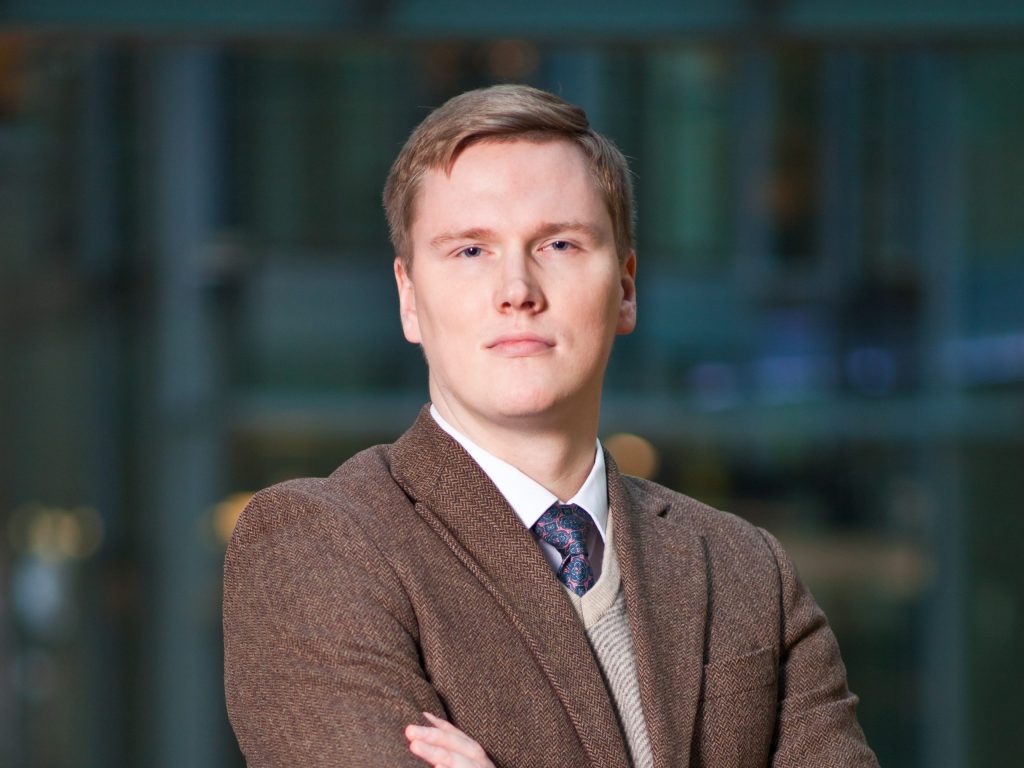Imagine a world without money. No more wars, because resources belong to all of humanity. The government ensures equal and just distribution of goods. Competition, egoism, banks, and capitalist greed vanish. People work not for pay, but to serve one another. No more stress, debt, or struggle to make ends meet.

Leonardas Marcinkevičius is an Expert at the Lithuanian Free Market Institute
It’s a familiar vision—not displayed in any art gallery, yet often rediscovered in the rhetoric of utopian communist thinkers.
Throughout history, there have been constant attempts to break free from the constraints imposed by money. In recent years, new proposals have emerged—from universal basic income to central bank digital currencies—promoted as tools for building a “more efficient” monetary system. But we’ve already seen the consequences of trying to escape the limits of money: after the pandemic, we witnessed record-high inflation triggered by large-scale money “printing.”
Money often frustrates us because it symbolizes limitation. We want more than we can afford—and that’s irritating. I’d like to buy a new phone and take a vacation to my dream destination. But when I calculate my savings, I realize I can only choose one. That feels restrictive. A company director might want to raise salaries and invest in new technologies. But after reviewing the budget, a choice must be made—funds can only go one way. Even politicians can’t finance everything at once—they must choose between increasing social benefits, raising pensions, or, in light of global tensions, strengthening the defense budget. Money serves as a constant reminder: resources are finite.
But what if we removed this irritating symbol of scarcity—what if money disappeared overnight? Suddenly, we’d be left guessing whether we could actually obtain the goods we desire. And it would soon become clear that scarcity—the shortage of desired goods—manifests in the most unexpected ways. We’d find there aren’t enough hotel rooms because everyone wants to go on vacation. And once there, getting a table at a restaurant would be nearly impossible—there’s not enough staff to serve everyone. They’re on vacation too.
Even if everything became “free,” limitation would still be everywhere. The difference? It would no longer be clear, predictable, or measurable. Life would become a constant source of stress and uncertainty.
That’s why we must understand: money has never been the cause of scarcity—it merely reflects it. It helps us manage limited resources and optimize their use.
Money provides structure—a system for organizing choices and decisions. Without it, economic life turns chaotic. Employees wouldn’t know how much they’ll earn. Suppliers wouldn’t know if their partners can settle payments. It is this clear, quantified pressure—expressed in money—that brings clarity, peace of mind, and efficiency. If your budget shows you can afford something, you can be confident in your decision.
Let’s dig even deeper. One of the greatest problems without money is the inefficiency of trade itself—the so-called “double coincidence of wants” dilemma: for an exchange to occur, both parties must simultaneously want what the other has. A farmer with wheat who wants shoes must find a shoemaker who, at that moment, wants wheat—not vegetables or iron. Without money, commerce and production would collapse. There would be no common denominator for value. In their efforts to obtain what they want, people would likely resort to coercion or force. That’s when the utopia reveals its darker, dystopian face.
It’s no coincidence that even in tightly controlled environments—like prisons—where resources are distributed centrally and equally, certain goods inevitably take on the role of money. Cigarettes, coffee, or other valuables become mediums of exchange.
People need a common language of value—a tool to acquire what they desire. Money helps us manage scarcity, brings clarity, and allows us to plan and organize our lives. Abolishing it wouldn’t eliminate scarcity—it would only transform it into something chaotic and unmanageable.
If tomorrow we all forgot what money is, by the day after tomorrow, we’d reinvent it. Because money is a precondition for freedom.
So the next time we hear politicians promising universal basic income, shorter workweeks, or “free” digital money, let’s remember: resources were, are, and always will be limited. Eliminating money won’t eliminate scarcity—it will only expose it in new and far more dangerous forms.